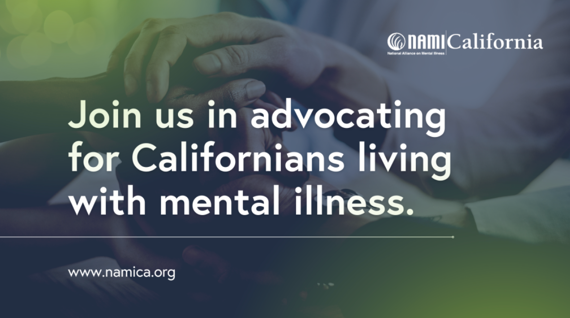CARE Court
What To Say About Your Mental Health
CARE (Community Assistance, Recovery and Empowerment) Court is a proposed framework to deliver mental health services to the most severely impaired Californians who too often languish – suffering in homelessness or incarceration – without the treatment they desperately need.
Under the framework, various parties from family members to first responders can petition a civil court to create a court-ordered care plan for people who meet specific criteria. These include a diagnosis of schizophrenia or other psychotic disorders, along with being at risk of harming themselves or others or being unlikely to survive on their own.
A CARE Plan will be developed by county behavioral health, the respondent and CARE Supporter including behavioral health treatment, stabilization medication, and a housing plan. The court reviews and adopts the CARE Plan with both the individual and county behavioral health as party to the court order for up to 12 months.
The county behavioral health care team, with the participant and CARE Supporter, begin treatment and regularly review and update the CARE Plan, as needed, as well as a Psychiatric Advance Directive for any future crises. The court provides accountability with status hearings, for up to a second 12 months, as needed.
Part 1 – Who it helps
- 18 years or older
- Has diagnosis in disorder class: Schizophrenia Spectrum and Other Psychotic Disorders
- Currently experiencing behaviors & symptoms associated with severe mental illness (SMI)
- Not clinically stabilized in on-going voluntary treatment
- At least one of the following:
- Unlikely to survive safely without supervision and condition is substantially deteriorating
- Needs services & supports to prevent relapse or deterioration, leading to grave disability or harm to others
- Participation in a CARE Plan or Agreement is the least restrictive alternative
- Likely to benefit from participating in a CARE Plan or agreement
Part 2 – How to refer someone to CARE Court
- Complete the petition (CARE-100), making sure to fill out all required information
- Additionally, provide the required documentation:
- Completed Mental Health Declaration (CARE-101) from licensed behavioral health provider, OR
- Evidence the respondent was detained for a minimum of two periods of intensive treatment (aka WIC 5250 holds), the most recent ones within the previous 60 days
- Petitions can be filed in-person at Norwalk and Hollywood Courthouses and anywhere Self-Help Centers are located. Future plan to also offer e-file option.
- Petition is filed by spouse/family members/friends, providers/clinicians, county BH, first responders, and others as specified by law.
- Petition is promptly reviewed by the court. If it does not meet criteria it is dismissed. If criteria is met the court orders the county to investigate, and file a written report.
Part 3 – What happens if someone relapses or fails to comply with CARE Court Plan?
- According to CalHHS, “failure to participate or complete their CARE plan will not impact respondent access to services, treatment, or housing”…however, “the respondent may be subject to additional court hearings or may be referred for a conservatorship consistent with current law.”
- According to DHCS Care Act, “if the respondent is not adhering to their CARE plan, the court may terminate their participation in the CARE process. There are no penalties for not complying with a CARE plan. The respondent may instead be referred to a higher level of care, such as a conservatorship.”

The above content (Part 1 and 2) is quoted directly from the Los Angeles County CARE Court Program Overview presentation in partnership with NAMI GLAC, as well as a presentation that gives an overview of CARE Court from August 2022.
Sources
- CalHHS
- DHCS Care Act
- California Health & Human Services Agency, 2022, Care Act/ SB 1338
- County of Los Angeles, Los Angeles County CARE Court Overview, https://static1.squarespace.com/static/5e5734857d08e01bbd1bb91d/t/6488dc82d013634c43afc392/1686691008858/CARE+Court+Town+Hall+Slides.pdf.
Let’s work together to advocate for Californians living with mental illness.
By signing up for our advocacy center, you’ll have direct access to key resources to advocate on behalf of critical issues impacting mental illness.
Your voice matters. Join NAMI California’s cause by visiting www.namica.quorum.us.
Support Mental Health Education
Sign our petition in support of Senate Bill 224 to provide California students in grades 1-12 with the mental health education they need. Thank you those who have already signed our petition in support of The bill passed the Senate and moves to the Assembly!
Support Mental Health Crisis Response and Services
Sign our petition in support of Assembly Bill 1065 to help improve the outcomes of crisis calls involving people who are mentally ill, by allowing taxpayers to make voluntary contributions on their California tax returns to support much-needed law enforcement training programs to better equip them to engage safely with individuals living with a mental illness.
Sign our petition in support of Assembly Bill 1331 to establish a new position at the Department of Health Care Services (DHCS) to improve our crisis care system.
Read and Learn
Nami West Los Angeles
Nurturing young minds. Subscribe to our newsletter for fun activities, parenting tips, and resources to support children's growth and development.



